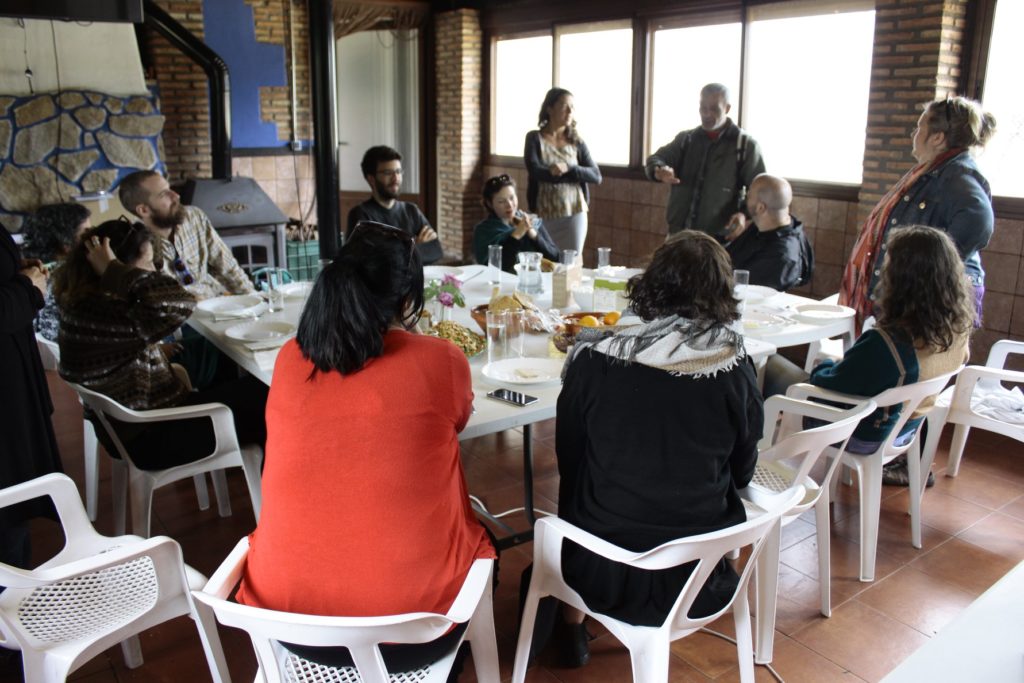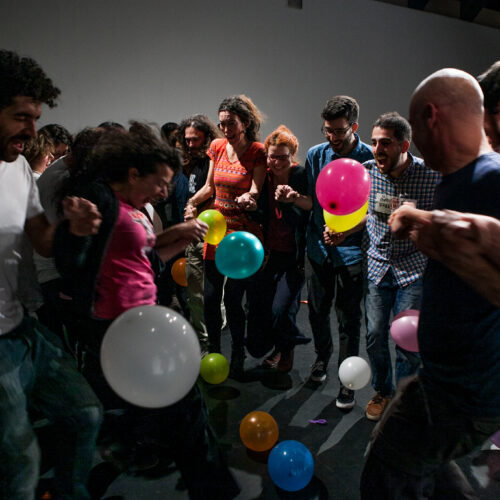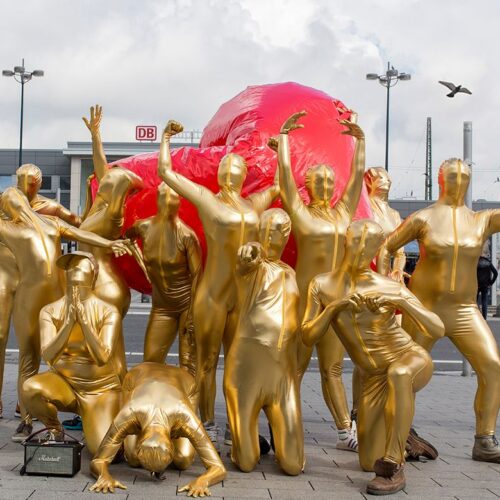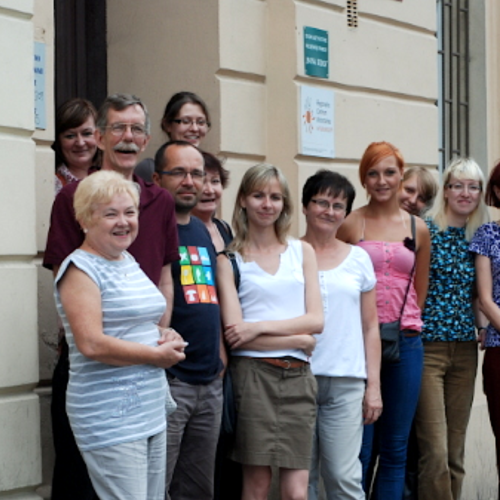Guerrilla Media Collective is a communications collective building a knowledge commons while also providing livelihoods for activist translators, using open value accounting and feminist economic principles.
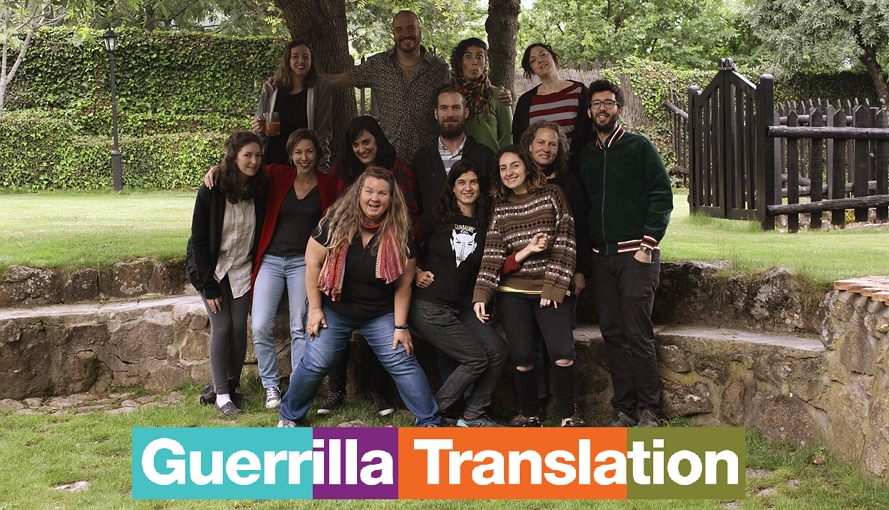
Activists can seldom afford to be activists. It isn’t uncommon for passionate people who work towards short systemic change to burn out due to an inability to support themselves in a way that’s coherent with their values, or to find time outside work to continue their activism. And without activists, change will not happen. The current system is designed to resist change and extract the maximum from every worker, and without strong activist opposition to many specific injustices, the status quo will remain locked in. GT wants to bust the stereotype: just as artists should not have to starve for their art, activists should not have to live in precarity for their cause. Guerrilla Translation was founded was to create a new way for activists to be self-sustaining and effective in their cause. The longer term idea would be to share and help adapt this model for other worker collectives, so other skilled workers (perhaps not only digital) can combine self-selected pro bono work with paid work. The point is, Guerrilla Translation is a form of “economic resistance” against an extractive capitalist marketplace, in the service of a new form of activist and worker empowerment.
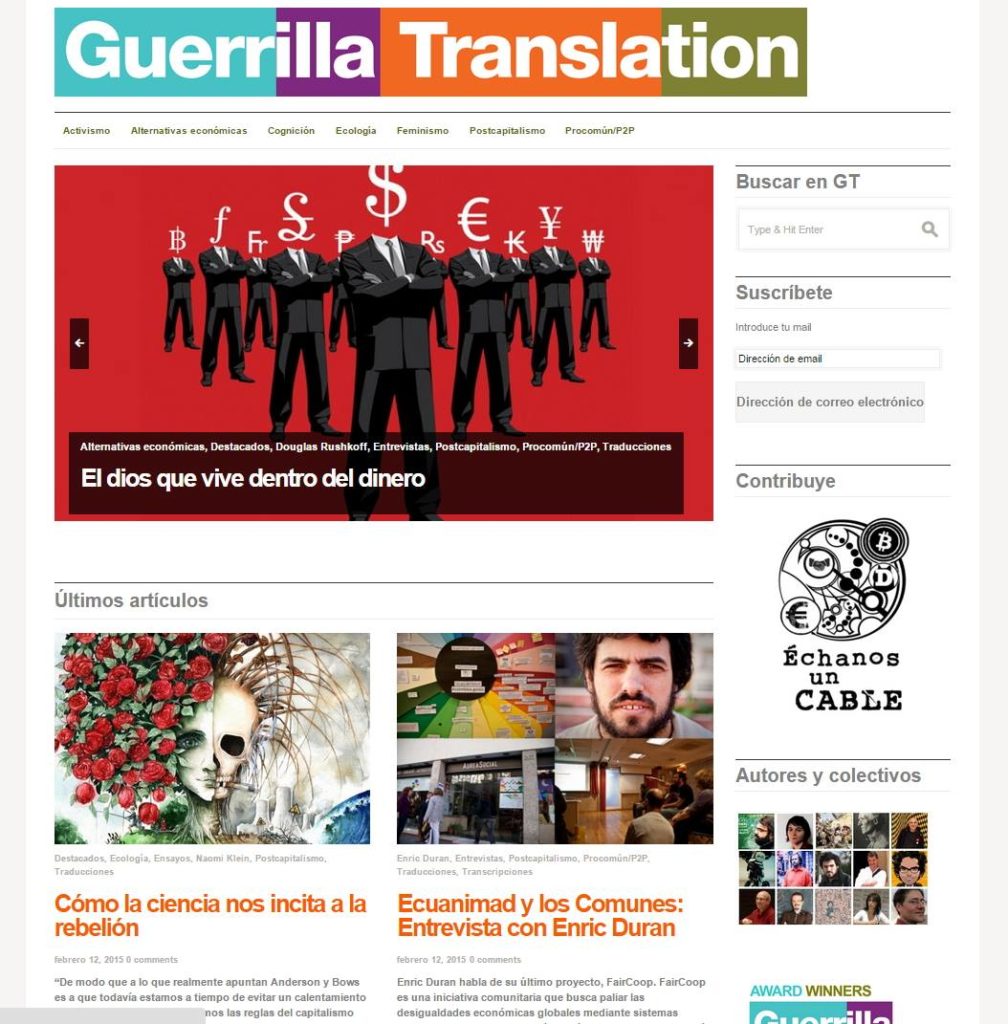
Guerrilla Translation wants to prototype post-capitalist, non-extractive, non-hierarchical market activities and open source them for massive uptake. These are not buzzwords but meaningful, ideological north stars. The GT vision is tight: open the way for people to do meaningful work with the skills and experiences they have developed; bring the way that work is done forward with careful, collaborative relationship building and appropriate technologies; and make it possible for others.
What is the Mission?
Concretely, the GT crew envision change to be possible in at least three related things in the way skilled workers, especially activists, can earn a living while “making a difference”. One, they want to create a new kind of distributed cooperative that makes workers, starting with translators, eager to participate and learn more, especially about how invisible labor is valued and emphasize fairness. Two, they want activists to be able to apply their skills towards meaningful work that matters to them, and get at least partly paid for some pro bono work while also gaining well-paid, value-aligned jobs as a collective, not as freelancers competing for crappy jobs in a cold capitalist marketplace. Three, they want to (continue to) create a body of translated works on topics that describe the positive potentials of new forms of politics, economics, governance, digital tools and decentralized internet, inclusivity, feminisms and other related topics, for people to share and implement new ideas in their cross-cultural communities (ie. an open knowledge commons).
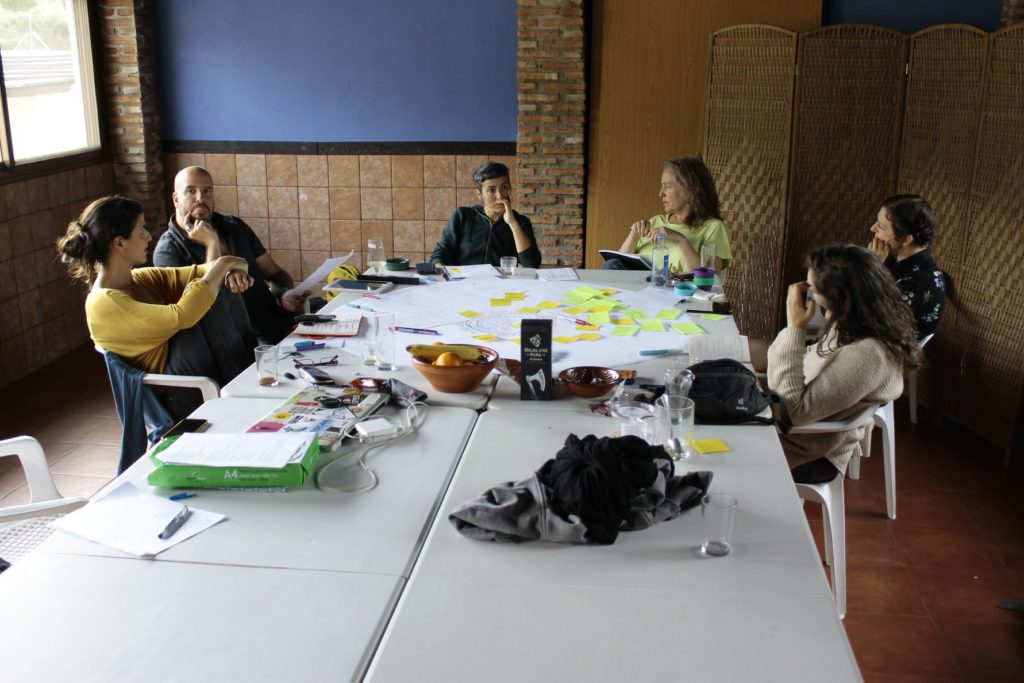
The GT team have been pursuing this mission with noteworthy recognition and success over the past five years. They have already created a sizeable translation knowledge commons, with over 100 published articles, subtitled short videos, full documentaries, interviews, three full length open-licensed books and various essays and publications. Their theory and practice of change involves empowered communities sharing knowledge internationally and inter-linguistically. Complementary to this is their economic/governance model itself, which aims to create a model for economic counter-power to buttress their political changemaking. This, in turn, offers productive options for individuals repulsed by the capitalist marketplace, not just in the field of translation but, after further prototyping and development, other types of labour including material production.
Long term, they would love to see similar Distributed Cooperative Organizations popping up and mutualizing their economic resources and best (operational) practices. This stands in stark contrast to the individualistic, predominantly male populated, and short-term gain oriented blockchain/ICO culture. The GT model retains the decentralized aspects of blockchain system but counterbalances the worst tendencies of blockchain culture with an inherent focus on feminism and the commons.
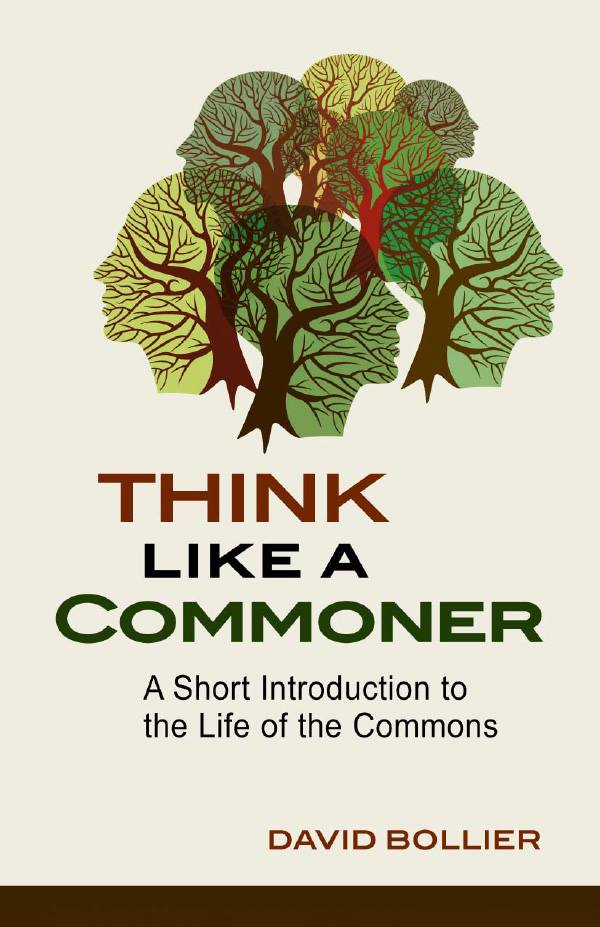
The Guerrilla Guerrilla Grant
Guerrilla Translation team needs funding to make time available to develop, document and share their open cooperative practices, train and incorporate new members and languages and spin off into complementary Guerrilla-branded collectives working in graphic arts, coding, video production and more. This is the primary relief our grant is here to partially provide. To do this they need to solidify alliances and build the technology necessary to articulate their economic model in an accessible and visually pleasing way. Their preference is to do this in partnership with critical feminist tech collectives working in distributed ledger technology.
GT also need to thoroughly research legal forms for transnational open value accounting cooperativism and make the information available and “off-the-shelf” for other collectives wishing to use a similar governance and economic model. Finally, they need to narrate and share these practices to inspire others by writing more articles, a handbook, developing their wiki, holding gatherings and speaking at events and conferences. They have an excellent, motivated, highly focused and female-led team that needs resources to dedicate more of their time to Guerrilla Translation.
The tangible activities that will be undertaken are split into two stages. Stage One is characterized by the real-world testing of a Minimum Viable (MVM) Economic/ Governance model. This is based on immediate implementation (if not full execution) of the Open Coop Governance Model, including changes agreed upon by the GT team. These stages will prioritize Research and implementation of MVM legal structure, community building and partnerships.
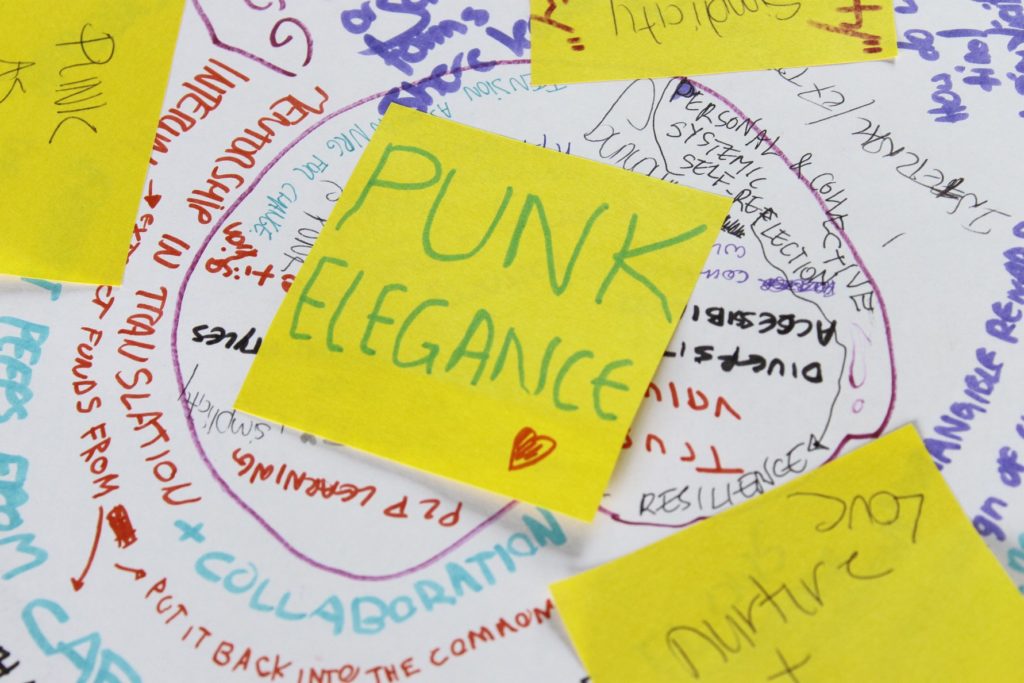 – Reloaded Workshop Reports (Summer 18, completed)
– Reloaded Workshop Reports (Summer 18, completed)
– Team Capacity Mapping and Commitment Statements (Summer 18, completed)
– Updated Governance Model (Summer 18, completed)
– Development of Community Rhythms and Tools (Summer 18, completed)
– Updating Websites (Autumn 18, completed)
– Reclaiming Social Capital and public relaunch (Autumn 18, completed)
– Initial Fundraising and implementation (Autumn 18, completed)
– Creation of interactive education materials (Autumn 18, completed)
– Peer Mentoring and Onboarding Process (Autumn 18, completed)
– Legal/Organizational Research (Autumn 18, completed)
– Minimum Viable Model (Winter 19, completed)
– Guerrilla Translation RELOADED reunion and public event (Spring 19, ongoing)
Stage Two is characterized by the implementation of the GT platform, a distributed ledger bases “one stop shop”, all-in-one tool both for Guerrilla Translation’s needs and those of Open/Protocol Cooperativism in general (see below for more details). It would also help to mentor, develop and onboard other language and productive activity nodes.
– Guerrilla Camp for new translators/member (Spring 19)
– Initial platform development camp (Spring 19)
– Platform backend development (Spring-Summer 19)
– Platform UX development (Spring-Summer 19)
– 2nd Guerrilla Camp for new translators/other knowledge workers (Summer 19)
– Continual governance model iteration and experimentation (Summer 19 – ongoing)
– New language-specific clusters (FR, GER, ITA, POR, Autumn 19, Winter 20)
– New income streams in other media (Graphic design, UX, illustration, merchandise, coding, Winter, Spring 20)
– Mutualized business/economic plan for all Guerrilla-branded nodes (Spring, Summer 20)
– Guerrilla Translation achieves self-sufficiency, not dependent on external funding (Autumn 20)
